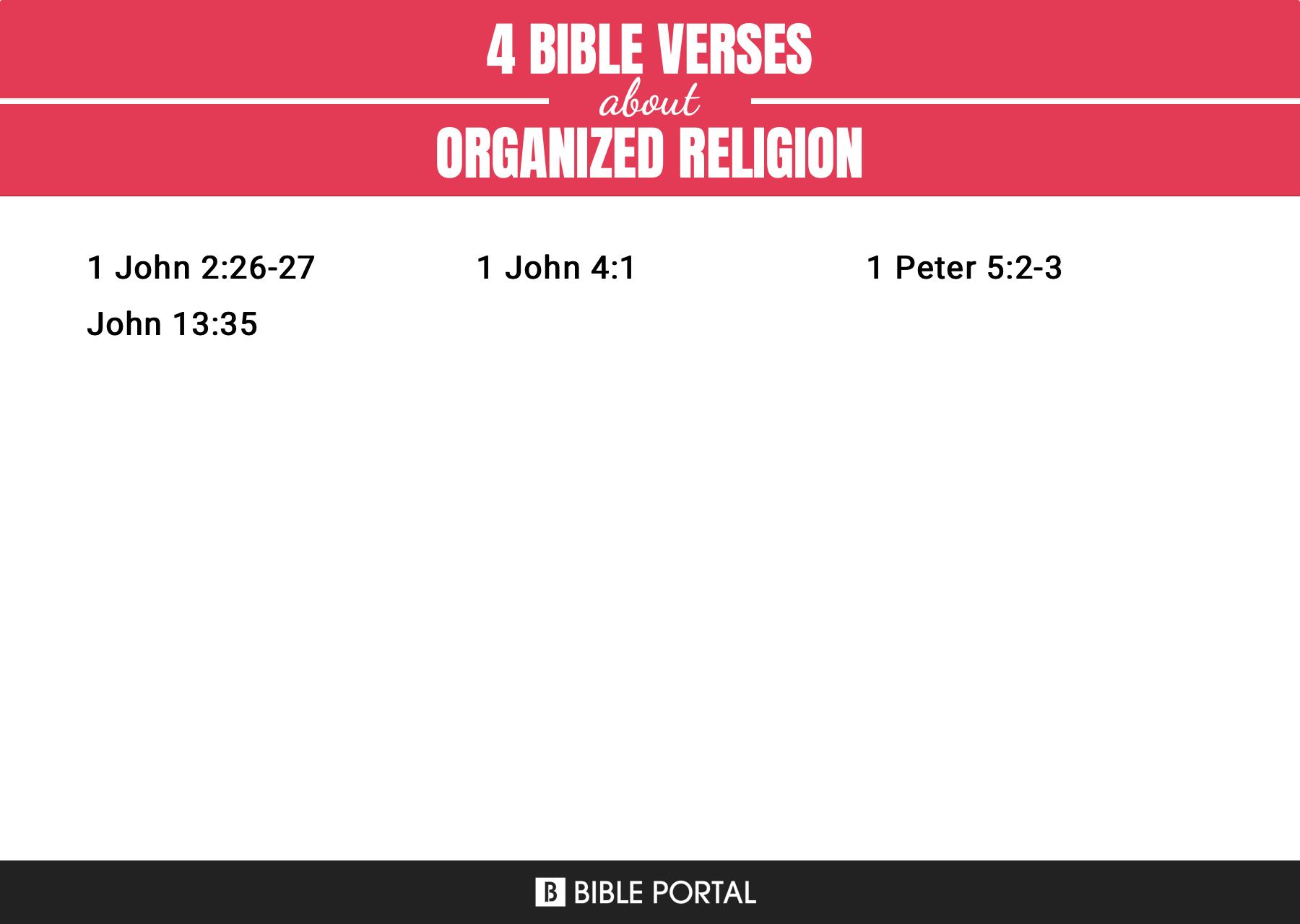Are you curious to know what the Bible has to say about organized religion? In today’s post, we will delve into this topic and explore the guidance and wisdom that scripture provides on the matter. Understanding the perspectives and teachings of the Bible can offer clarity and insight into how we engage with organized religion in our modern world.
Exploring what the Bible says about organized religion can help us reflect on the true essence of faith, community, and spiritual practices. By delving into these sacred texts, we can gain a deeper understanding of the principles that underpin organized religion and how we can align our beliefs and actions with the teachings of the Bible. Join us as we uncover the valuable lessons and timeless truths that scripture offers on the role and significance of organized religion in our lives.
The Bible’s Perspective on Organized Religion: Unveiling Truths and Clarity
Organized religion is a concept that has been present throughout human history and is a central aspect of many societies around the world. The Bible, as a foundational text for Christianity, offers guidance and perspective on the role of organized religion in the lives of believers.
One of the key themes in the Bible regarding organized religion is the importance of community and fellowship. In the book of Hebrews (Hebrews 10:25), believers are encouraged not to neglect meeting together, but to gather regularly to encourage one another in faith and good works. This emphasis on communal worship highlights the value of organized religion as a way to build relationships, support one another, and grow in spiritual maturity.
At the same time, the Bible also warns against the pitfalls of empty religious practices and rituals. In the book of Isaiah (Isaiah 1:13-14), God condemns the Israelites for their superficial observance of religious rituals, highlighting the importance of genuine repentance and righteousness over mere outward displays of piety. This cautionary message serves as a reminder that organized religion should be rooted in sincere devotion and obedience to God, rather than empty traditions or appearances.
Furthermore, the Bible addresses the issue of religious leadership within organized religion. In the New Testament, Titus 1:5-9 outlines the qualifications for overseers and elders in the church, emphasizing the importance of moral integrity, sound doctrine, and servant leadership. This guidance underscores the need for accountable and qualified leadership within organized religious communities to ensure spiritual health and guidance for believers.
Overall, the Bible presents a nuanced perspective on organized religion, recognizing both the benefits of community worship and fellowship, as well as the potential dangers of hypocrisy and legalism. By emphasizing the importance of genuine faith, sincere devotion, and accountable leadership, the Bible offers guidance for believers seeking to engage with organized religion in a way that honors God and nurtures spiritual growth.
What does the Bible say about religious organizations?
The Bible does not explicitly mention religious organizations as we understand them today. However, it does provide guidance on the structure and function of the church, which can be seen as the foundation of organized religion.
In the New Testament, particularly in the book of Acts and the Epistles, there are references to the early church and how it was organized. For example, in 1 Corinthians 12, it talks about how the church is made up of different parts, each with its own function but working together as one body. In Ephesians 4, it mentions the roles of leaders within the church, such as apostles, prophets, evangelists, pastors, and teachers, for the equipping of the saints and the building up of the body of Christ.
Overall, while the Bible does not specifically address modern-day religious organizations, it does provide principles and guidelines for how the church should be structured and function, emphasizing unity, love, service, and the proclamation of the Gospel.
What is considered organized religion?
In the context of the Bible, organized religion refers to institutions and structures that have been established to practice and promote a specific faith or belief system. This often includes established churches, denominations, and religious organizations that have structured hierarchies, doctrines, and practices. Organized religion provides a framework for worship, community, and spiritual guidance for its adherents. It can also involve rituals, ceremonies, and prescribed ways of interpreting sacred texts like the Bible.
What did Jesus say about different religions?
In the Bible, Jesus emphasized the importance of following him as the way to salvation. In John 14:6, Jesus said, “I am the way and the truth and the life. No one comes to the Father except through me.” This statement underscores the exclusive nature of following Jesus as the path to God, emphasizing that he is the only way to true relationship with God. Jesus also taught about the dangers of false prophets and warned his followers to be discerning about different teachings. In Matthew 7:15-16, Jesus said, “Beware of false prophets, who come to you in sheep’s clothing but inwardly are ravenous wolves. You will recognize them by their fruits,” highlighting the need for believers to be cautious and discerning when encountering different religious teachings. Ultimately, Jesus’ teachings in the Bible emphasize the centrality of following him as the way to truth and salvation.
What is a person who believes in God but not organized religion?
A person who believes in God but not organized religion can be described as a spiritual or religious individual. They may consider themselves to be spiritual but not religious, emphasizing a personal relationship with God outside of traditional institutional structures. These individuals often choose to practice their faith independently, focusing on personal spiritual growth and connection with God rather than participating in formal religious institutions or rituals.
